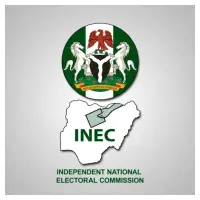Senate President Godswill Akpabio has raised serious concerns regarding the growing trend of government officials and institutions disregarding summons issued by the National Assembly (NASS).
Speaking through Senator Abdul Ningi at the National Conference on Public Accounts and Fiscal Governance, Akpabio emphasized that Public Accounts Committees (PACs) must assert their constitutional mandates as outlined in sections 80, 81, and 88 of the 1999 Constitution.
"The PACs possess the authority to summon any official to account for public expenditure. Any refusal to appear is an affront to democratic principles and a violation of the rule of law," Akpabio stated firmly.
The Senate President specifically criticized the increasing non-compliance among Ministries, Departments, and Agencies (MDAs), urging PACs to reinforce their oversight powers through thorough investigations and performance-based expenditure reviews.
He called for improved technical support and implementation of digital tools to strengthen legislative oversight, particularly when dealing with complex entities such as the Central Bank of Nigeria, Nigerian National Petroleum Company Limited, and the Federal Inland Revenue Service.
"This conference should not end in words alone; it must provide lawmakers with actionable strategies to reinforce fiscal accountability," Akpabio added.
House Speaker Highlights Weak Audit Enforcement
In a related development, Speaker of the House of Representatives, Abbas Tajudeen, expressed deep concern over Nigeria's weak audit enforcement mechanisms, revealing that public audit queries amounting to over N300 billion remain unaddressed.
Abbas, represented by House Leader Julius Ihonvbere, emphasized that the persistent disregard for audit recommendations must be halted, insisting that financial infractions should have consequences.
He highlighted that the 10th House has adopted a more proactive approach by introducing real-time tracking mechanisms, follow-up systems, and audit digitization to ensure MDAs comply with financial regulations.
"Fiscal oversight is no longer a ceremonial process, it is a strategic instrument for national growth," Abbas noted, adding that the House is working to make audit reports more accessible and comprehensible to the general public.
The Speaker also advocated for a harmonized national audit system to ensure fiscal discipline across all tiers of government and called for consistent monitoring of budget performance beyond appropriation stages.
"We are embedding a culture of performance-based reviews, sectoral audits, and impact assessments," he stated.
These developments highlight the growing tension between legislative oversight bodies and government institutions, raising questions about accountability in Nigeria's governance structure.
Stay updated with the latest political developments by following BenriNews on our social media platforms: Facebook, Twitter, LinkedIn, WhatsApp, and Telegram.











